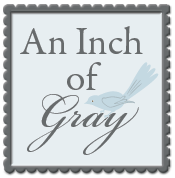I started out by happily creating a corner for the work:
Step One: Measure
I laid out my two sheets of fabric on the floor. NOTE: JoAnn Fabrics cut both sheets 1" short, so I had to make a few adjustments. Thankfully, with the thick white wood crib we received from Mom & Dad Shedd, there's a little leeway.
I measured the crib's dimensions in the following three ways:
1. Highest possible height of metal mattress level from floor + 3 inches (32 inches).
2. Length of side metal mattress level + 3 inches (22 inches)
3. Length of front metal mattress level + 3 inches (54 inches)
I measured twice on the crib, and FOUR TIMES on the sheets. I knew that if I didn't position things correctly, I would be out to the store for more purchases, something we can't afford to do.
Step Two: Open
I opened the Stitch Witchery I purchased dirt cheap at Winkie's, a local (and incredible) store for everything. Why am I mentioning this as a step? Because it matters.
Step Three: Prepare the Area
So on the Stitch Witchery package, it tells us what iron-setting we need AND that I must have on-hand a damp clothe. I set out our iron and grabbed leftover fabric from the crib skirt cuts. As I was doing this in the basement I was able to keep rewetting the cloth in the laundry basin.
Step Four: Briefly Iron the Fabric
Sure, some people might have done this before, but I find it best to do it in this part of the process. Otherwise, the sheet is going to pucker.
Step Five: Roll Out the Stitch Witchery and Pin the Hem
First, I wrapped up the stitch witchery in a folded hem--I laid it down flat on the edge of the fabric and simply folded that line into the fabric. There was roughly a 1" crease with the Stitch Witchery smack dab between the two sides. NOTE: make sure you're doing this on the "wrong" fabric side.
Then I pinned the hem down so I could keep the hem straight without having to risk burning myself. When I ironed, I made sure to avoid the pins. Instead, I ironed around them and then removed them, pressed the iron in those places, and wallah! Done.
Step Six: Remember to Keep the Cloth Damp
The leftover fabric was a long line, so I wet the entire piece, wrung it out, and laid it between the crib skirt and the iron. As soon as I felt the leftover fabric dry, I would rewet it. I believe this keeps us from burning the crib skirt, starting a fire, or melting the Stitch Witchery more than required. I'm just guessing, but I could be right.
Here's a look at one of the hems. Notice how the top of the hem, the scissored portion, is uneven. Remember, this is not my fault. So I had to correct this mistake by folding the hem over more severely in some areas. Not a big deal, but a bit annoying.
And here is one of the two side-panels, awaiting its last hem:
See you tomorrow for part two!
icj,
~j
































Yay! You are doing great!
ReplyDelete